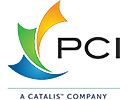Gestational high blood pressure, additionally called pregnancy-induced high blood pressure (PIH), is a condition identified by high blood pressure while pregnant. It commonly develops after the 20th week of pregnancy and also impacts regarding 6-8% of expectant women. Comprehending the causes, signs and symptoms, and also treatment alternatives for gestational hypertension is critical for the health and wellness and wellness of both the mother as well as child.
Reasons For Gestational Hypertension
The specific cause of gestational high blood pressure is still unidentified, but numerous threat factors have actually been identified. These include:
- First maternity
- Advanced maternal age
- Multiple pregnancies (e.g., doubles or triplets)
- Pre-existing clinical conditions, such as hypertension, kidney condition, or diabetic issues
- Family members history of gestational hypertension
It is thought that the placenta plays a role in the development of gestational high blood pressure. The placenta supplies oxygen and nutrients to the developing unborn child, but in many cases, it might not work properly, leading to hypertension in the mom.
Signs of Gestational Hypertension
Gestational hypertension is frequently asymptomatic, implying that it does not present visible symptoms. Nonetheless, some women may experience:
- Hypertension readings throughout prenatal check-ups
- Swelling in the hands, face, or legs
- Proteinuria (presence of excess healthy protein in the urine)
- Headaches or vision adjustments
If left unattended, gestational high blood pressure can advance to an extra severe condition called preeclampsia, which might have serious ramifications for both the mommy and also infant.
Treatment as well as Management
The main objective of dealing with gestational high blood pressure is to stop preeclampsia and also manage the connected threats. Relying on the seriousness of the problem, therapy choices may consist of:
- Regular surveillance of high blood pressure and also pee healthy protein levels
- Dietary changes, such as decreasing salt intake
- Enhancing exercise as well as preserving a healthy weight
- Drugs to lower high blood pressure, if needed
- Close surveillance of fetal well-being with normal ultrasounds and also non-stress tests
Sometimes, if the threats to the mommy or child come to be too expensive, early delivery might be advised. This decision is made on a case-by-case basis, thinking about the gestational age of the fetus as well as the general visiorax gotas para que sirve health and wellness of the mommy.
Conclusion
Gestational high blood pressure can be a worrying problem that needs close tracking and ideal management. Normal prenatal exams, high blood pressure surveillance, and urine healthy protein examinations are essential in spotting as well as managing this condition. By complying with a treatment strategy and also making essential way of living artralon precio colombia changes, most women with gestational hypertension can effectively bring their pregnancy to term with marginal complications. It is very important to consult with a health care expert for correct medical diagnosis, therapy, as well as ongoing treatment.
